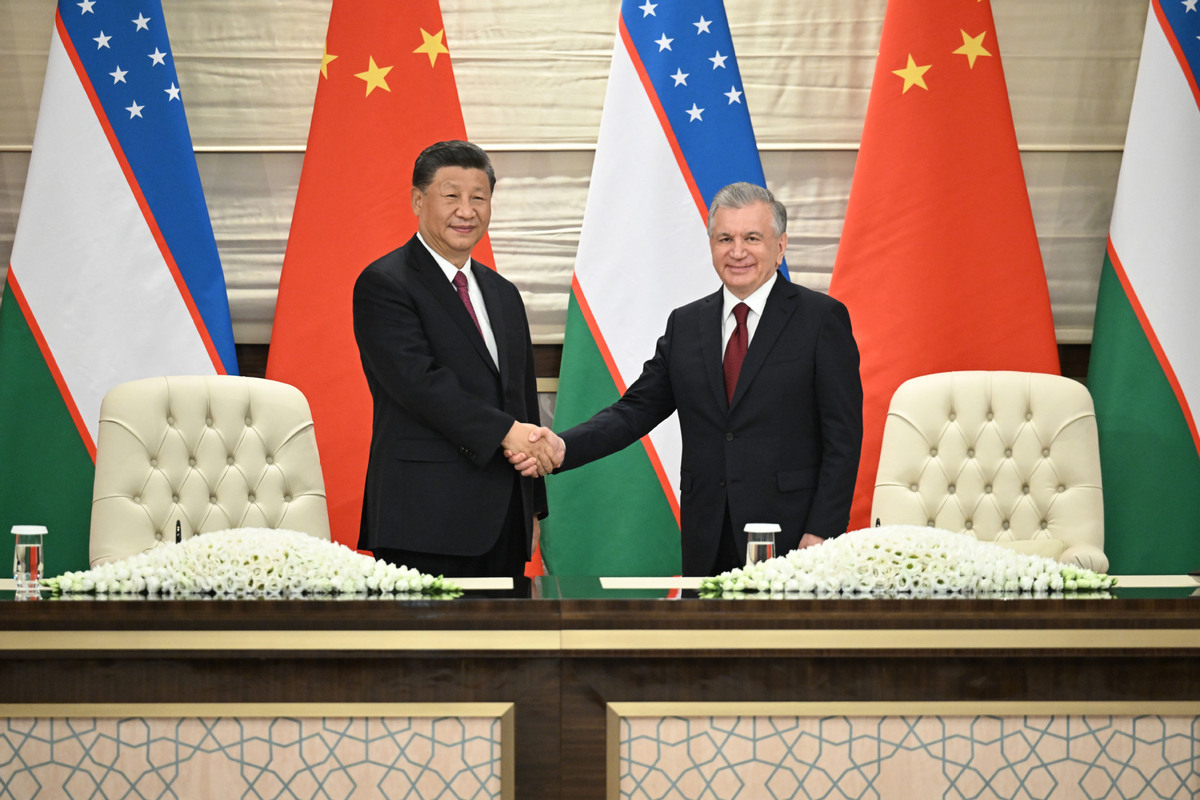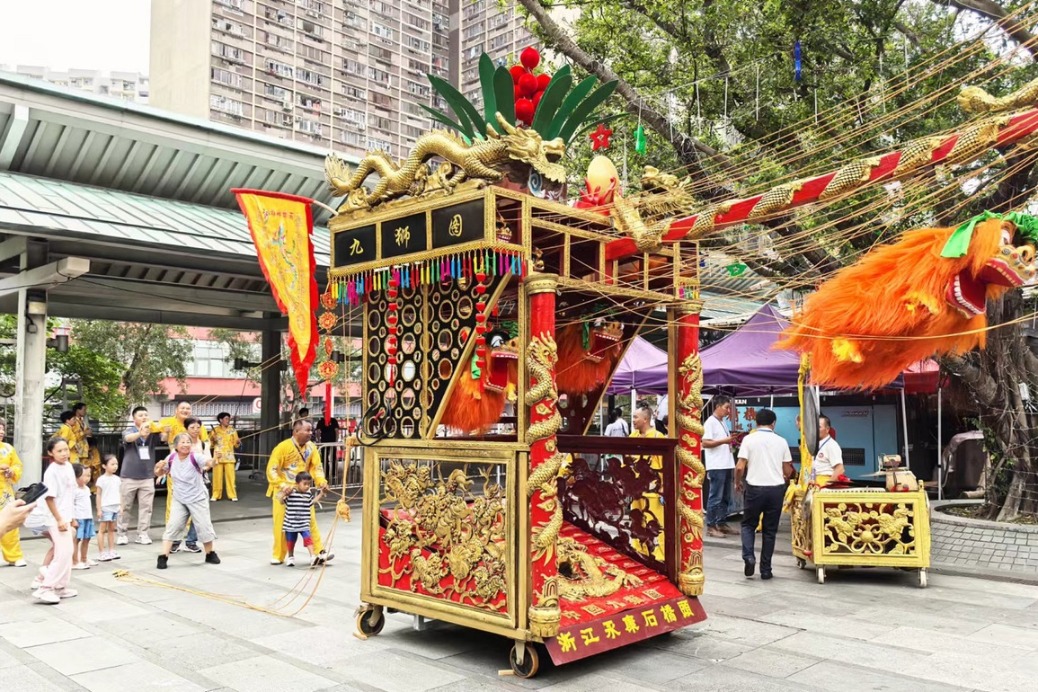Xi Focus-Closeup: Shining pearls of civilization along ancient Silk Road


BEIJING -- Samarkand, Uzbekistan, September 2022. It took President Xi Jinping just a split second to recognize what he had received from Uzbek President Shavkat Mirziyoyev, as the two exchanged gifts during the former's state visit to the Central Asian country.
It was a miniature model of Registan Square, which Xi visited on his first trip to Uzbekistan as Chinese president in 2013. The overwhelming magnificence of ancient civilizations that he had felt so vividly then came back to him like it was yesterday.
In September 2013, Xi visited the Ulugh Beg Observatory and Registan Square in Samarkand and marveled at the dazzling polychromic walls, painted pottery, silk carpets, domes, minarets and sculptures all over the sites.
"It feels like we have traveled across time and space, and are now marching on the ancient Silk Road," Xi said a decade ago.
Three years later, Xi visited Uzbekistan again, and this time fully immersed himself in the spectacle of the ancient city of Bukhara.
In his speech at the Uzbek Parliament in the capital Tashkent, he spoke of Bukhara's historical sites, including the Ark fortress, Kalyan Minaret and Samanid Mausoleum. He said the sites allowed him to feel up close the marvelous history and culture of the Silk Road.
"The ancient cities of Tashkent, Bukhara and Samarkand are like shining pearls scattered along the Silk Road," he said. "They string together the historical memories about the friendly exchanges and mutual learning between the East and the West, and have left splendid marks in the annals of world civilizations."
Xi's admiration for the historical sites had been turned into action by the two countries. It was during his 2013 trip to Uzbekistan that the two countries jointly launched a project to preserve and restore the historical sites in the ancient city of Khiva.
On his next visit to the Central Asian country, in the midst of pressing affairs, Xi took time to meet and talk with the Chinese personnel who were working in Uzbekistan for the preservation of cultural relics and archaeological cooperation.
Qiao Yunfei was among those in charge of the preservation and restoration work in Khiva. Upon learning about his job, Xi urged him and his colleagues to make sure the cultural relics were soundly preserved.
Completed in 2019, the Khiva project was a demonstration of how much weight cultural heritage protection holds in Xi's heart, as well as being an excellent example of China's endeavors in international cooperation in that regard.
In his speech at the UNESCO headquarters in Paris in 2014, Xi spoke about his previous visit to Samarkand, and said that an attitude of equality and modesty is required if one wants to truly understand the various civilizations.
At a group study session of the Political Bureau of the Communist Party of China Central Committee in 2016, Xi noted that cultural and people-to-people exchanges are also an important part of the Belt and Road Initiative, calling for mutual appreciation, understanding and respect among all countries involved.
In his keynote speech at the Conference on Dialogue of Asian Civilizations in 2019, Xi said that China was ready to work with other countries to protect Asian cultural heritage and better preserve and sustain the civilizations.
The call received a good response. A white paper titled "China's International Development Cooperation in the New Era," which was released in January 2021, said that China had participated in 33 projects for the joint preservation of cultural relics with 17 Belt and Road countries.
And the China-Uzbekistan cooperation on archaeology is still underway. Archaeologists from both countries are striving to uncover the mystery of the ancient settlement of Mingtepa in the Fergana Valley in Uzbekistan.
"We will work with our Uzbek colleagues to conduct a complete survey of the location and the status of the ancient city using both Chinese archaeology and mapping technologies that are at the cutting edge globally," said Zhu Yanshi of the Chinese Academy of Social Sciences, a leader of the joint archaeological team.
- Woman honored for guarding the border for 53 years
- Former provincial anti-graft official prosecuted for suspected bribery
- Flowers presented to martyrs, honoring their eternal spirit
- Journey to Joy: Life through a photographer's lens
- China cracks down on foreign fishing trawlers breaking moratorium
- On board G8388: Jinshanzui — Shanghai's last fishing village





































